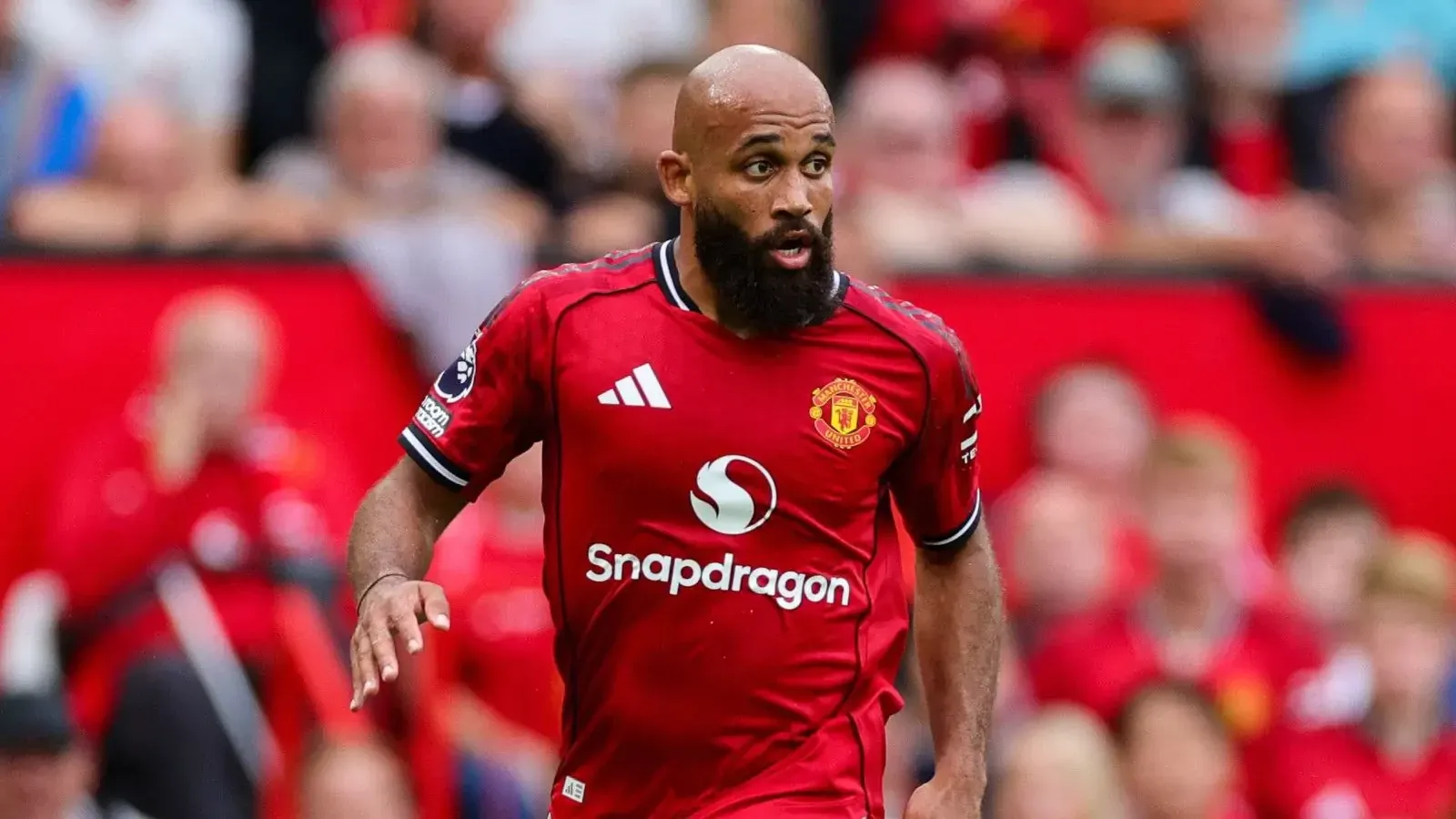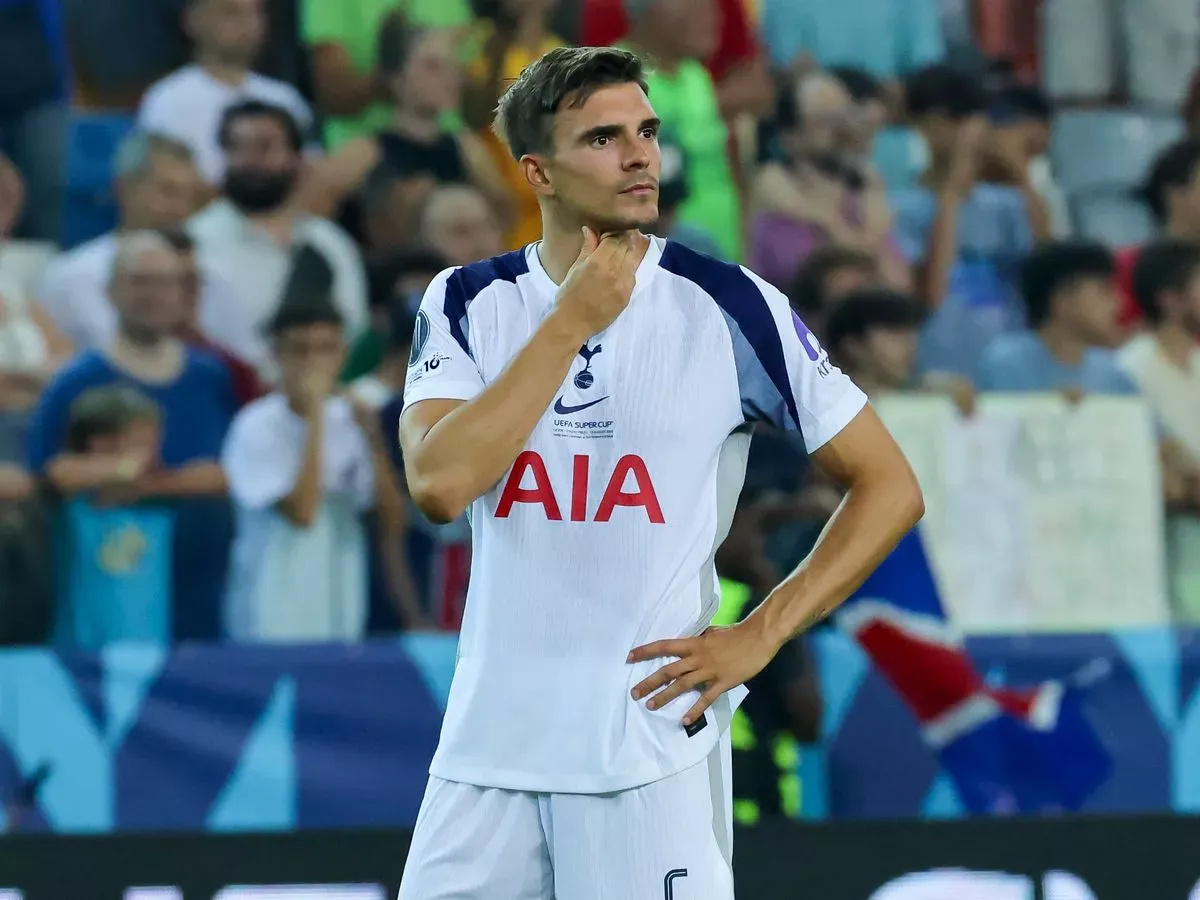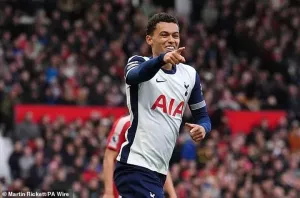In a Premier League season defined by tactical evolution, this weekend presents a fascinating clash of philosophies as Thomas Frank's Tottenham Hotspur host Ruben Amorim's Manchester United. Both clubs entered the 2025/2026 campaign aiming to forge distinct identities after turbulent periods. Currently separated by just goal difference in the league table, the surface-level similarities end there.
Spurs, under the pragmatic guidance of Frank, have ground out results, sitting 6th despite underlying metrics that suggest a potential overperformance. While Amorim's United are a study in chaotic potential, occupying 8th place with a tactical system that generates a league-leading number of chances while remaining defensively fragile. This encounter is more than a battle for three points; it is a referendum on two vastly different managerial projects, with team news and functional tactics set to dictate the narrative.
Tactical Deep Dive
The departure of Ange Postecoglou and the appointment of Thomas Frank heralded a significant ideological shift at Tottenham. The puritanical, high-line "Angeball" has been replaced by Frank's adaptable pragmatism, rooted in defensive solidity and tailored game plans. While Frank has utilised various formations, including the 4-3-3 and 3-4-3, the functional principles remain constant: defensive compactness, disrupting opponents in wide areas, and a potent threat from set-pieces.
Offensively, Frank's Spurs are far more direct than their predecessors. The emphasis is on quick, vertical transitions and creating wide overloads to service the forwards. The full-backs, Pedro Porro and Destiny Udogie, are still key offensive weapons, tasked with pressing high and occupying advanced lanes to stretch opposition defences. However, the patient, possession-based build-up has given way to a more aggressive, transitional style that prioritises getting the ball into the final third with speed.

Conversely, Ruben Amorim has remained dogmatically attached to his 3-4-2-1 formation at Manchester United, a system that has produced volatile results. The tactical signature of Amorim's United is their unique build-up play, which can see the central centre-back step into midfield to create numerical superiority. The objective is to control the game through the middle of the pitch, using short, deliberate passing before unleashing through balls into attacking channels.
When possession is lost, the immediate trigger is an aggressive counter-press, designed to win the ball back high up the pitch and launch rapid counter-attacks. The system is designed to get two attacking midfielders, like Bryan Mbeumo, operating in the half-spaces behind a central striker, creating a cluster of threats. Yet, this high-risk approach has consistently left them vulnerable, with a susceptibility to long balls played over their defence and a notable weakness in defending set-pieces.
Statistical Analysis & Team News
The underlying data paints a starkly different picture of the two sides. Manchester United boast a robust Expected Goals (xG) of 17.5, the highest in the division, against an Expected Goals Against (xGA) of 15.5, indicating their capacity to create high-quality chances. Tottenham, by contrast, are struggling, with an xG of just 10.1 against an xGA of 14.4, resulting in a worrying xG differential of -4.3. This suggests Frank's side have been fortunate to secure their current points tally and have systemic issues in chance creation. Furthermore, a remarkable 70% of Manchester United's league matches this season have seen over 2.5 goals, a testament to their potent attack and porous defence.
Team news is arguably the most decisive factor for this fixture, and it falls catastrophically for the home side. Tottenham are facing an injury crisis that eviscerates the core of their attacking unit. Key playmaker James Maddison is out long-term with a cruciate ligament injury, and he is joined on the side-lines by Dominic Solanke, Dejan Kulusevski, and Mohammed Kudus. The midfield is also impacted, with Yves Bissouma and Lucas Bergvall unavailable. While the return of Cristian Romero provides a defensive boost, the sheer volume of absentees in the final third severely blunts their threat.

Manchester United's situation is far healthier. Their primary concern, centre-back Lisandro Martínez, may be available for a return from a knee injury, which would be a significant boost. With no new suspensions and key players available, Amorim has a near full-strength squad to choose from as he looks to exploit a wounded opponent.
The Value Conclusion
This match represents a clear divergence between perception and reality. While Tottenham's league position is respectable, it is belied by poor underlying numbers and a devastating injury list that removes their most potent attacking threats. Frank’s tactical pragmatism can only compensate so much for a crippling lack of firepower.
Manchester United, for all their inconsistencies under Amorim, are a chance-creation machine, leading the league in xG. Their high-risk system is prone to defensive lapses, but they are travelling to face a side arguably in its weakest possible state. The tactical battle may be nuanced, but the disparity in available talent and proven offensive output is vast. The market appears to be undervaluing United's potent attack against a severely depleted Spurs side.
Value Bet: Manchester United to Win
- Potential Goal scorer: Bryan Mbeumo. As United's top league goal scorer this season, the forward operates as one of the two advanced midfielders and will be central to exploiting the spaces in a Spurs side forced to adapt.
- Potential Card Recipient: João Palhinha. Known for his combative style, the Tottenham midfielder will be tasked with breaking up United's intricate central play, making him a prime candidate for a booking.
- Expected Goals: Over 2.5 Goals. This aligns perfectly with the statistical trend of Manchester United's matches, with 70% of their league games seeing three or more goals this season, reflecting their high-octane attacking and defensive frailties.




